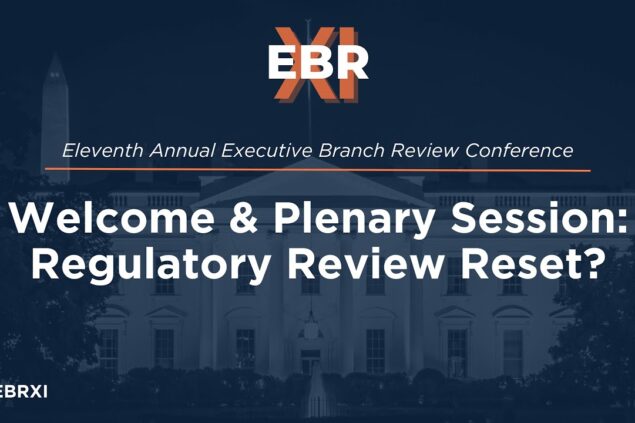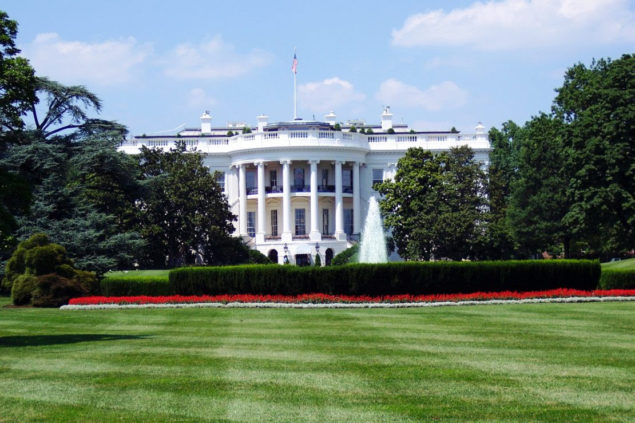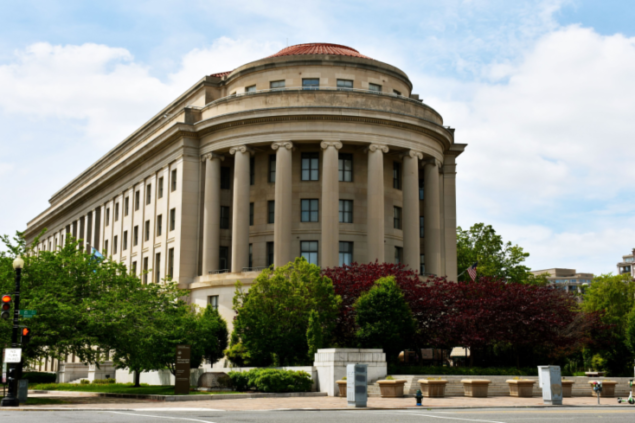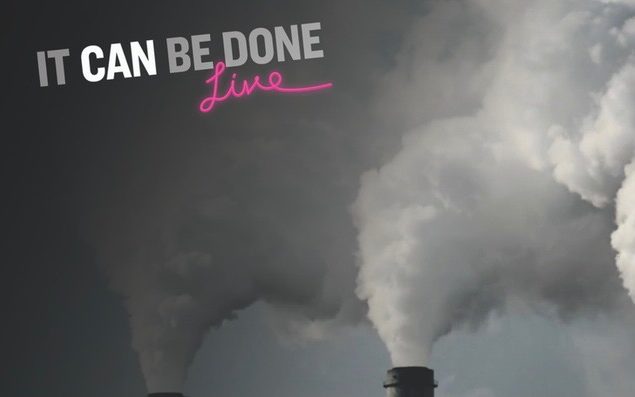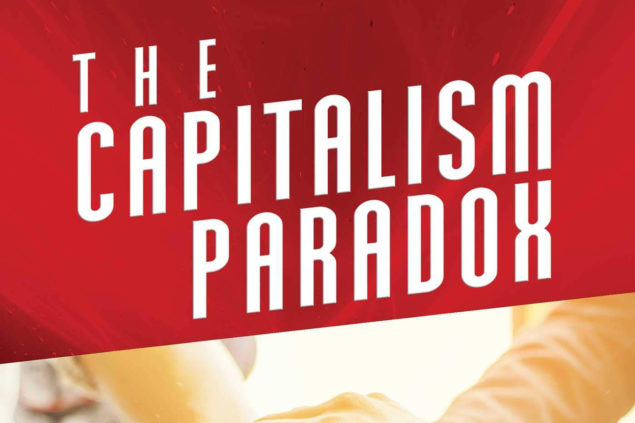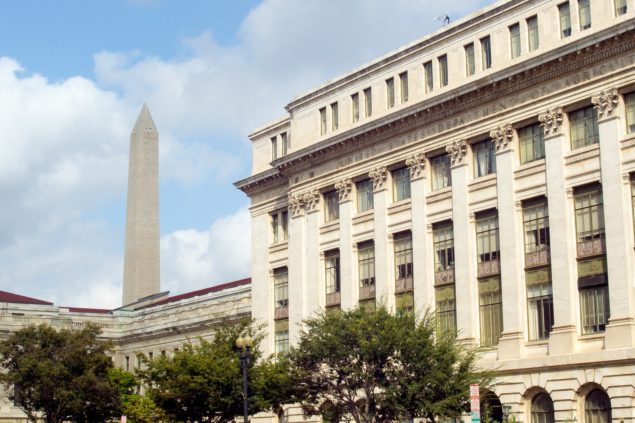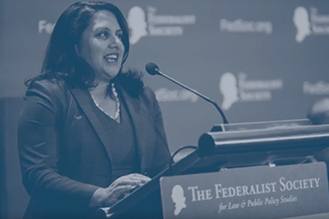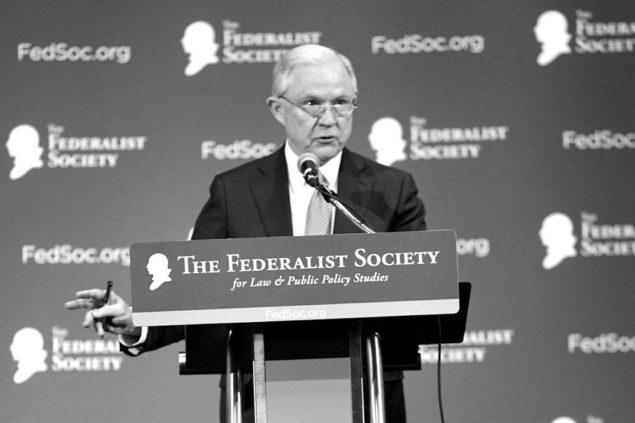Susan Dudley
Director, GW Regulatory Studies Center & Distinguished Professor of Practice
Trachtenberg School of Public Policy & Public Administration, George Washington University

Susan Dudley
Director, GW Regulatory Studies Center & Distinguished Professor of Practice
Trachtenberg School of Public Policy & Public Administration, George Washington University
Susan Dudley is Director of the George Washington University Regulatory Studies Center, which she established in 2009 to raise awareness of regulations’ effects and improve regulatory policy through research, education, and outreach. She is also a distinguished professor of practice in the Trachtenberg School of Public Policy and Public Administration. She is past-president of the Society for Benefit Cost Analysis, a senior fellow of the Administrative Conference of the United States, a National Academy of Public Administration Fellow, on the boards of the National Federation of Independent Businesses Legal Center and Economists Inc., and on the executive committee of the Federalist Society Administrative Law Group. Her book, Regulation: A Primer, with Jerry Brito, is available on Amazon.com.
From April 2007 through January 2009, Professor Dudley served as the Presidentially-appointed Administrator of the Office of Information and Regulatory Affairs in the U.S. Office of Management and Budget and was responsible for the review of draft executive branch regulations under Executive Order 12866, the collection of federal-government-wide information under the Paperwork Reduction Act, the development and implementation of government-wide policies in the areas of information policy, privacy, and statistical policy, and international regulatory cooperation efforts.
Prior to OIRA, she directed the Regulatory Studies Program at the Mercatus Center at George Mason University, and taught courses on regulation at the George Mason University School of Law. Earlier in her career, Professor Dudley served as an economist at OIRA, as well as the Environmental Protection Agency and the Commodity Futures Trading Commission. She was also a consultant to government and private clients at Economists Incorporated. She holds a Master of Science degree from the Sloan School of Management at MIT and a Bachelor of Science degree (summa cum laude) in Resource Economics from the University of Massachusetts, Amherst.

A person listed as a contributor has spoken or otherwise participated in Regulatory Transparency Project events, publications, or multimedia presentations. A person's appearance on the website does not imply an endorsement or relationship between the person and the Regulatory Transparency Project. The Regulatory Transparency Project takes no position on particular legal or public policy issues. All expressions of opinion by a contributor are those of the contributor.
Contributions
Welcome & Plenary Session: Regulatory Review Reset?
The Regulatory Transparency Project was pleased to co-sponsor the opening session of the Federalist Society’s Eleventh Annual Executive Branch Review Conference on Transparency, Accountability, and the Administrative State.
Watch this videoWho Is Regulating the Regulators?
Susan Dudley and Paul Ray shared their perspectives on the importance of this “obscure but powerful” office, and what the lack of a confirmed administrator means for the executive branch and its agencies.
Watch this videoDeep Dive Episode 230 – Who Is Regulating the Regulators?
Susan Dudley and Paul Ray share their perspectives on the importance of this “obscure but powerful” office, and what the lack of a confirmed administrator means for the executive branch and its agencies.
Listen to this podcast“Those who fail to learn from history are condemned to repeat it.”
Susan Dudley
In a Wall Street Journal op-ed, Howard Beales and Tim Muris review the results of the Federal Trade Commission’s previous efforts (in the 1970s) to reshape the economy through rushed rulemaking; it is a disastrous history that the FTC’s new majority seems determined to repeat.
Read this articleDeep Dive Episode 188 – Immigration Policymaking in the Biden Administration
An expert panel debates the appropriate regulatory process for immigration policymaking.
Listen to this podcastImmigration Policymaking in the Biden Administration
An expert panel debates the appropriate regulatory process for immigration policymaking.
Watch this videoHow Do Regulatory Agencies Implement Laws?
After a law is passed by Congress, how is it implemented? Susan Dudley explains.
Watch this videoDeep Dive Episode 161 – Congressional Review Act: First Branch Gets the Last Word
In this live podcast, experts review the overriding purposes of the CRA and do a deep dive into its technical elements.
Listen to this podcastDeep Dive Episode 151 – Public Input in Agency Rulemaking
An expert panel considers the legal and policy issues surrounding whether, and how, an agency should take account of public comments in rulemaking.
Listen to this podcastDeep Dive Episode 138 – It Can Be Done Live: The Future of Our Earth
An expert panel explores the potential of human ingenuity to solve the problems facing our earth and the conditions necessary to make those solutions a reality.
Listen to this podcastIt Can Be Done Live: The Future of Our Earth
The creators of the award-winning documentary, They Say It Can’t Be Done, in partnership with the Federalist Society’s Regulatory Transparency Project, present It Can Be Done Live – a conversation between entrepreneurs, regulatory experts, and noted academics around creative and bipartisan solutions to global challenges to our shared future. The third of four panel events, It Can Be Done Live: The Future of Our Earth, took place on September 24th, 2020.
Watch this videoDeep Dive Episode 88 – The Whys and Hows of Commenting on Rules
In this episode, Susan Dudley, Karen Harned, and Brian Mannix give an overview of the process and value of the public commenting process for proposed regulations.
Listen to this podcastDeep Dive Episode 80 – New Executive Orders Directing Agency Guidance
How significant are these orders? What impact will they have on regulatory policymaking? What has been the initial reaction to these new measures?
Listen to this podcastDeep Dive Episode 77 – Book Review: The Capitalism Paradox: How Cooperation Enables Free Market Competition
In this episode, Paul Rubin, the world’s leading expert on cooperative capitalism, discusses his new book, The Capitalism Paradox: How Cooperation Enables Free Market Competition.
Listen to this podcastGovernment Shutdown and Deregulation
Susan Dudley
According to my George Washington University Regulatory Studies Center colleague, Bridget Dooling, a lengthy federal shutdown threatens to derail President Trump’s deregulatory priorities. Not only are covered agencies unable to make progress on their deregulatory initiatives, but the portals for public notice and comment and the office that must review all regulations before they can be issued are caught up in the furlough.
Read this articleWill OIRA Extend its Review to Independent Agencies?
Susan Dudley and Eileen J. O'Connor
At the Federalist Society’s Sixth Annual Executive Branch Review Conference, Office of information and Regulatory Affairs (“OIRA”) Administrator Neomi Rao spoke about the new agreement she had hammered out with the Treasury Department to bring OIRA’s review of IRS regulations more in line with its review of other agencies’ regulations. She also strongly hinted that independent regulatory agencies may be next, observing that “OIRA review can promote a more constitutional and coherent regulatory policy,” and that the “good regulatory practices promoted by OIRA can apply to all agencies that regulate the public.” In her latest Forbes column, Susan Dudley agrees. She argues that OIRA review encourages greater transparency, analytical rigor, and accountability in regulations, and urges the Administration to extend long-standing executive orders requiring OIRA review to all agencies that issue regulations binding on the public.
Read this articleAttorney General Directs DOJ to Stop Circumventing APA
Susan Dudley
In remarks to the Federalist Society’s National Lawyers Convention on Friday, Attorney General Jeff Sessions announced new Department of Justice policy on issuing guidance “or similar instruments of future effect by other names, such as letters to regulated entities.”
Read this articleCan Regulations Come With Unintended Costs?
While the goals of regulations are often admirable, regulations may come with unintended consequences. Sometimes, regulations can hurt those they were intended to benefit. Susan Dudley, Director of the George Washington University Regulatory Studies Center, discusses these unintended costs and her work at the Regulatory Studies Center.
Watch this videoHow Do Regulations Get Made?
What is the mechanism by which regulations are developed, finalized, and updated? How can this process be improved? Susan Dudley, Director of the George Washington University Regulatory Studies Center, provides insight into these questions.
Watch this videoRegulation from Washington: Exploring Unseen Costs
Regulations emanate from Washington and “affect every aspect of our lives, but we’re often unaware of it because they do so in hidden ways.” What are these effects and do they benefit American workers, companies, and consumers? A variety of experts on regulatory issues discuss this important question.
Watch this videoRegulation & the American Dream
Arguably, regulation has helped us achieve the American Dream. The benefits are numerous. But have regulations gone too far? The Regulatory Transparency Project’s Fourth Branch video series will explore this question.
Watch this videoImproving How Science is Used in Environmental Regulation
Susan Dudley
Effective regulatory policy that focuses resources on addressing real threats to public health and the environment depends on reliable scientific information and transparent policy choices.
Read this article
